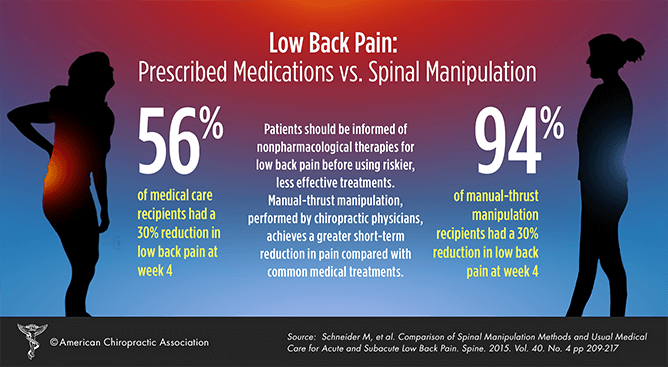Are Chiropractic Care Adjustments Compulsive? Setting Apart Truth From Misconception
Are Chiropractic Care Adjustments Compulsive? Setting Apart Truth From Misconception
Blog Article
Content Composed By-Klint Justesen
You might have heard that chiropractic modifications can bring about an addicting reliance, yet that's a typical misunderstanding. Many patients find alleviation without developing any kind of type of dependency. It's important to comprehend the true purpose of these adjustments and exactly how they match your overall health approach. So, exactly what does the scientific research say concerning chiropractic care and your wellness? Let's check out the truths.
Understanding Chiropractic Adjustments and Their Objective
When you think about chiropractic changes, it's essential to recognize their purpose and how they function. These adjustments intend to correct misalignments in your spinal column and joints, advertising far better alignment and movement. By using regulated pressure to particular locations, chiropractic specialists help ease discomfort, improve function, and enhance your general wellness.
Chiropractic care focuses on your body's capacity to heal itself, stressing the link in between the spinal column and the nerves. When your spine is straightened, it can lower nerve interference, allowing your body to function efficiently.
Regular changes might additionally help stop future problems, keeping you active and pain-free. Inevitably, chiropractic changes serve to support your health, enhance mobility, and boost your lifestyle.
Common Myths Concerning Dependency and Chiropractic Care Treatment
Lots of people hold misunderstandings regarding the connection in between chiropractic treatment and addiction treatment. One common misconception is that chiropractic care modifications develop an addiction-like dependence. In reality, lots of people find relief from pain and discomfort, but this does not mean they create a psychological or physical dependency.
One more myth is that chiropractors are simply attempting to maintain you coming back for more changes. Most chiropractors prioritize your well-being and go for lasting wellness rather than constant gos to.
Additionally, some think chiropractic treatment can change conventional addiction treatments, however it ought to complement, not replace, evidence-based treatments. Recognizing these myths can help you make educated choices concerning your wellness and health without falling prey to misinformation.
The Science Behind Chiropractic Care Adjustments and Client Experience
While some might examine the efficiency of chiropractic care modifications, a growing body of research study supports their duty in reducing pain and enhancing overall function.
Studies show that spine manipulation can minimize pain from conditions like lower back pain, tension frustrations, and neck discomfort. When you undertake chiropractic treatment, the modifications intend to bring back correct positioning, enhancing your body's natural recovery capabilities.
Many people report boosted flexibility and a higher feeling of wellness after treatment. Additionally, the therapeutic connection you construct with your chiropractic practitioner can improve your experience, as they supply personalized treatment customized to your requirements.
wellness center austin tx of scientific support and positive person experiences helps clear up why chiropractic adjustments work for many people looking for relief.
Final thought
In conclusion, chiropractic changes aren't addictive; they're developed to boost your well-being and promote proactive health care. By exposing https://www.openaccessgovernment.org/idd-therapy-back-pain-and-sciatica/77448/ surrounding dependence, it's clear that these treatments can supply significant alleviation without developing a cycle of addiction. Embracing chiropractic care as a complementary method to standard treatments can bring about far better wellness outcomes. So, if you're considering adjustments, felt confident that they have to do with improving your quality of life, not developing a dependence.
